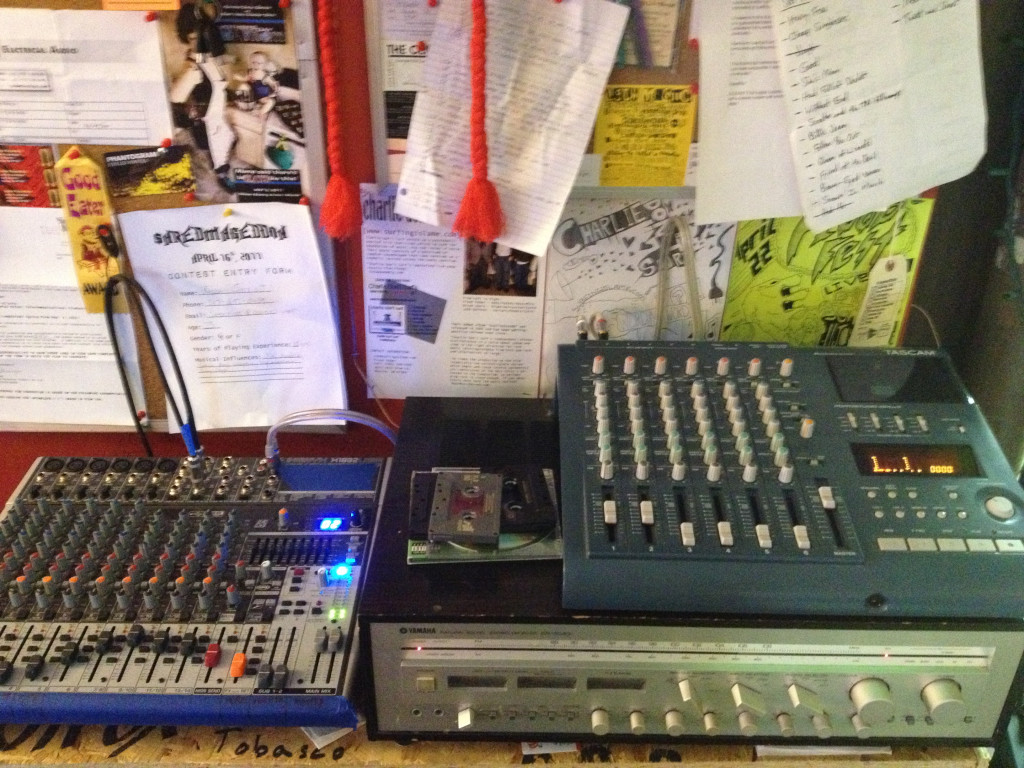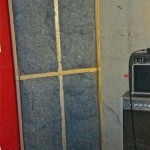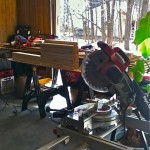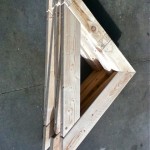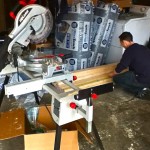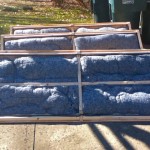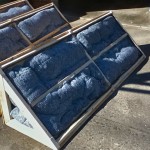Posts Tagged ‘Recording Studio’
Gear vs Theory & Experience
Over the years I have recorded music using a variety of equipment ranging from mini cassette recorders to large mixing consoles. My first legit recording devices was a Tascam 4-track cassette recorder that was given to me when my guitar player’s brother upgraded his own recording setup. I didn’t care that it was a hand-me-down recorder. I was too busy being psyched about recording 4 tracks at once. At the time it was the best piece of recording equipment that I had used. It had its quirks. The RCA line outs no longer worked unless you folded up a piece of paper and wedged it under the jacks. Despite it being pretty well worn, I managed to squeeze a shitload of life out of the recorder. In fact, it’s still in my studio today. I use it whenever I want to mix something down to cassette.
I have always subscribed to the mantra that good gear does not always guarantee a good recording. Although there are times when high-end gadgetry makes a task easier, a lofty price tag does not always ensure that the final product will sound great. Much as ice skates would be useless to someone who doesn’t know what they’re doing, decent recording equipment won’t mean a thing if the operator has no idea what they’re doing. Understanding of the physics of sound and how it behaves in different environments will help you to better utilize both your space as well as your equipment.
Whether you’re an aspiring recording engineer or a musician looking to save some money by recording yourself rather than going into a studio, you all are chasing the same thing. You are both trying to capture the best representation of the music because you know that if the audio quality is shitty, people aren’t going to listen. So if you’re serious about recording and want to separate your work from the sea of amateurs that are flooding the internet with shoddy demo recordings, you need to do some homework. Luckily for you, I’ve compiled a list of books that I’ve come across over the years and have been recommending to to up-and-coming engineers. Now before you recoil in horror at the thought of having to fork over some of your precious earnings for this ancient book technology, keep in mind that these books contain everything you need to know to be a competent engineer. Some of these books are used to teach audio production at the college level, and you’re not even required to pay thousands of dollars in tuition. It’s not like sound is a new concept. Once you master the subject you’re pretty much set unless something crazy happens that alters the mass of the Earth… Even if that were to happen, you’d have bigger things to worry about. So quit your griping and let’s talk books.
- Audio in Media – http://preview.tinyurl.com/ksds3cx
This book is a solid introductory book. When I was teaching as an assistant at Ball State University, this was our go to book. It teaches everything from basic physics to microphone placement. A great resource for anyone interested in audio whether it be for music, radio, or for video applications. - The Recording Engineer’s Handbook – http://preview.tinyurl.com/pqr268a
This is the book that I recommend to anyone interested in recording music. This is a great book that includes information on microphones and interviews with top engineers expressing their philosophies on recording. - Mastering Audio – http://preview.tinyurl.com/m9kfovf
I have seen this book in every studio I have had the pleasure of visiting or working in. That being said, this isn’t the first book that I would recommend to someone just starting out. There are a number of heady topics discussed in this book. Pick this one up after you’ve been at it for a while. - On-Location Recording Techniques – http://preview.tinyurl.com/m9kfovf
The title is pretty self explanatory. If you plan on running/recording live sound, this book will be incredibly useful to you.
So there you have it, this concludes my list of recommended reads for beginners. Stock your bookshelves and absorb as much of this knowledge as possible. As with most things, books are no substitute for real-life experience but they do make it possible for you to minimize the learning curve. So don’t read the books and start acting like you know everything because it’s annoying and won’t earn you any respect.
Studio Blog: Raising the Bar
Up until this point I have solely been using this website to promote my recording and mixing services to the public. To be completely honest, the blog was just an afterthought. It was something that I would update so that I could promote a new blog and draw attention to the website. That pretty much sums up the reason that any business would put in the effort to maintain a blog, right? Going into a blog with this mentality is limiting and short sighted. A blog can be so much more than an advertising tool. A blog has the potential to deliver a tremendous amount of information so long as the audience has enough interest and discipline to read it. So this epiphany (or whatever you want to call it) that I’ve had made me realize that I’ve been doing the public a disservice by maintaining such a mediocre blog up to this point. I’m going to change that. I’m going to make it a point to utilize text, audio, and video mediums to share my opinions, experience, and knowledge of recording topics with the masses.
That being said, I hope that you’re a bit forgiving as I start this out. I’m not a professional writer, actor, or videographer… You’re going to have to bear with me as I figure all of this stuff out as I go. I mean, I’m not technologically challenged or anything to that extent but it’s still pretty difficult to handle any production as a one-person show. The plan is to stick with it and improve with every blog, podcast, and youtube video. As long as you’re able to take something away from each post, I will feel that it’s worthwhile.
Stay tuned!
Bass Trap Construction
This year I spent my spring break building bass traps for the studio with my good friend, Ian. While most of my friends were tanning on sunny beaches, my week was comprised of whiskey, meat, and power tools; albeit not at the same time. When all is said and done expensive tans that will fade but my new bass traps will last for a long, long time. The project is still not 100% finished. I am still waiting on my fabric to arrive so that I can stretch it over the front of these traps to make them more visually appealing. I purchased 25 yards of barn-red burlap to use as a finishing material so that it would match the current color scheme in the studio. They are going to look AMAZING!
Bass traps can be expensive due to their size and weight… Shipping costs can be pretty extreme. I decided that it was in my best interest to build my own based on my needs. I enjoy working with my hands and saving money so it seemed like a good fit. Also, by building them myself, I can be sure of the quality of my traps and will be able to make future adjustments if need be without having to contact a manufacturer. All in all I am building 9 bass traps for the studio but I was only able to finish 7 of them in a single week.
I’m still rather sore from the 7 continuous days of the physical labor that went into creating these things but it’s a good kind of sore. I mean, it wasn’t like I was working at a balls-to-the-wall pace for the entire week. I made sure to schedule some rest and relaxation as well. Ian and I made it a point to have a cookout every night of the week. We ate exceptionally well… Oh, and I made sure to document the feasting with my iPod so that I could share it with all of my friends that were busy posting pictures of beaches in a future post.
